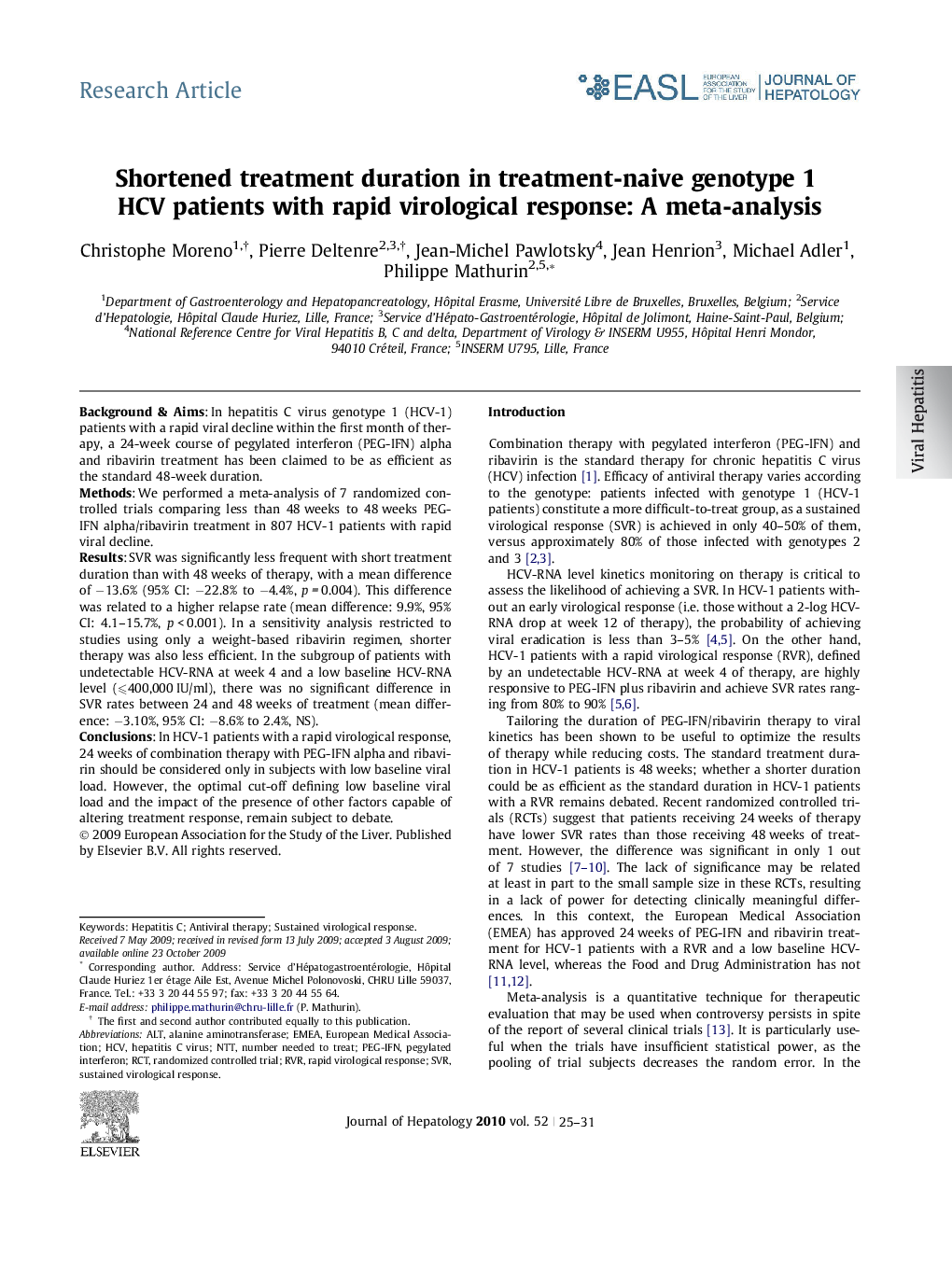| Article ID | Journal | Published Year | Pages | File Type |
|---|---|---|---|---|
| 6109837 | Journal of Hepatology | 2010 | 7 Pages |
Background & AimsIn hepatitis C virus genotype 1 (HCV-1) patients with a rapid viral decline within the first month of therapy, a 24-week course of pegylated interferon (PEG-IFN) alpha and ribavirin treatment has been claimed to be as efficient as the standard 48-week duration.MethodsWe performed a meta-analysis of 7 randomized controlled trials comparing less than 48 weeks to 48 weeks PEG-IFN alpha/ribavirin treatment in 807 HCV-1 patients with rapid viral decline.ResultsSVR was significantly less frequent with short treatment duration than with 48 weeks of therapy, with a mean difference of â13.6% (95% CI: â22.8% to â4.4%, p = 0.004). This difference was related to a higher relapse rate (mean difference: 9.9%, 95% CI: 4.1-15.7%, p < 0.001). In a sensitivity analysis restricted to studies using only a weight-based ribavirin regimen, shorter therapy was also less efficient. In the subgroup of patients with undetectable HCV-RNA at week 4 and a low baseline HCV-RNA level (⩽400,000 IU/ml), there was no significant difference in SVR rates between 24 and 48 weeks of treatment (mean difference: â3.10%, 95% CI: â8.6% to 2.4%, NS).ConclusionsIn HCV-1 patients with a rapid virological response, 24 weeks of combination therapy with PEG-IFN alpha and ribavirin should be considered only in subjects with low baseline viral load. However, the optimal cut-off defining low baseline viral load and the impact of the presence of other factors capable of altering treatment response, remain subject to debate.
